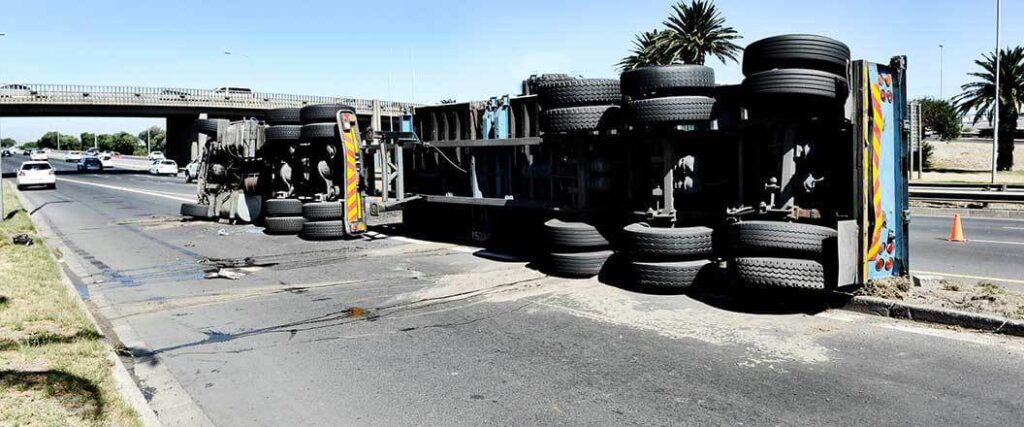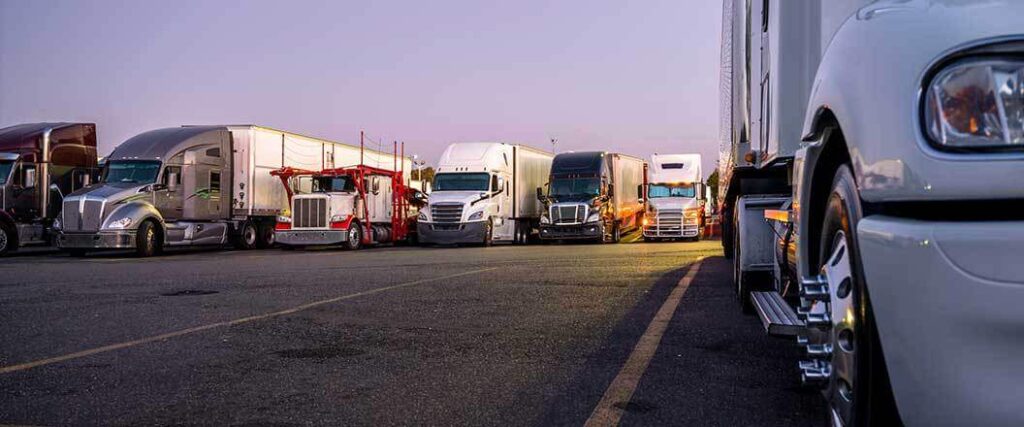LTL cargo insurance is the shield protecting goods and your investment in them when disasters strike. When shipping cargo, you must take the proper precautions to ensure that your goods reach their destination safely and in good condition. Protect your shipment while giving yourself peace of mind.
LTL Cargo Insurance covers all cargo from losses outside limited carrier liability. The FMCSA requires proper insurance filing and coverage requirements under the law to have a claim successfully payout per rulings BMC-84 and BMC-85. This ruling requires $5,000 coverage per transport and $10,000 per occurrence.
Are you shipping cargo across the country? Then you need to ensure its safety along with your financial investment. The article below will help familiarize you with LTL cargo insurance.

LTL cargo insurance protects cargo that is moved daily through less-than-truckload shipping. However, unfortunate circumstances sometimes occur as a truckload shipment travels to its destination.
For this reason, every shipment should have the best possible protection available to combat a total loss scenario. Most, if not all, shipments are a business’s tied-up capital, and a loss of that capital can be catastrophic.
With less-than-truckload shipping (LTL), there is a significant need to ensure that your cargo arrives at its destination intact every time. The nature of LTL means that your shipment is paired with other loads on a truck, and accidents resulting in damages or loss can happen.
As a shipper, obtaining cargo insurance is vital to assign liability to the carrier and an insurer. Some assume that coverage is automatic or that all types will completely protect their shipment from top to bottom. Nothing could be further from the truth.
Knowing what kind of coverage is in place and what you are lacking is always essential. Never assume you are covered, and always inquire about the details before shipping.
A 3rd party insurance company can supply cargo coverage. Considering the value of commodities that travel via LTL daily, not having coverage shouldn’t be an option.
| Mixed Freight | $1.03 Billion |
| Textiles | $205 Million |
| Various Foods | $175 Million |
| Plastics | $152 Million |
| Paper Goods | $130 Million |
LTL cargo insurance is always recommended to give the shipper peace of mind. However, if there is any damage or a total loss, the shipper will be required to cover the premium. The premium is the cost covered by the shipper, which is a percentage of the cargo’s value.
You must obtain LTL cargo insurance to protect your truckload cargo from total loss, damage, and theft. Getting that extra layer of protection will ensure that the cost of your goods and your investment in those goods are protected from any potential hazard that may come up.
If you need some other form of insurance other than LTL, check out our article explaining what cargo insurance is and the different types you can obtain.
Before your cargo is shipped, the carrier is required to assign a cargo rate to your shipment. The cargo class, value, and density will play a critical role in the cost of your desired coverage.
The Federal Motor Vehicle Safety Administration (FMCSA) has mandatory requirements requiring all services transporting cargo to carry insurance.
The federal mandates, BMC-34 and BMC-83, state that all vehicles must have the following.
BMC-84 and BMC-85 state that a surety bond in the amount of $75,000 is required in the case of brokers and freight forwarders. Ocean or air freight has a significantly higher dollar value amount for liability coverage which stretches to upwards of $5,000,000.

Once coverage for your cargo is obtained, your commodities are then insured and ready for shipping. When and if something goes wrong during shipping, the shipper will have a claim filed against the carrier.
LTL insurance will payout on claims made for issues of total loss, damage, or theft. Regardless of liability, LTL insurance pays out on a claim to the shipper within a timeframe of up to 30 days filing date.
The payout from a claim is the amount you have been insured for in the case of damage, theft, or total loss. Insurance will payout the coverage amounts when instances like the ones listed here occur.
Here are some examples of instances where a loss might happen:
If you need to file a claim for cargo that has fallen victim to one of the above examples, the steps below will help guide you forward.
Truck liability insurance coverage offered by the carrier will generally only cover the cost of transportation. The commodities themselves typically require additional coverage. The extra coverage prevents a total financial loss for the shipper and can be acquired additionally.
However, in other cases, 3rd party cargo insurance may be required because most, if not all, carriers do not offer additional insurance coverage to protect your business's goods. Although truckload shipping is reliable, protecting your finances needs a sure thing.
Regarding LTL shipping, carrier liability is the direct responsibility a carrier has for your shipment. In more precise terms, the carrier's liability is based on being held accountable for the safe delivery of your shipment.
Before filing a claim against the carrier in the event of a loss, the shipper is responsible for proving the carrier's liability. In other words, the shipper must be able to prove that the condition of the goods shipped was perfect before the carrier took ownership of the delivery.
Proving that your commodities were in a different condition before the carrier received them is critically important in order to have a successful claim. Familiarizing yourself with all the terms and fine print of your policy will help when it comes time to file a claim.
Here are some key terms to familiarize yourself with regarding LTL insurance liability coverage.
According to the FMCSA, insurance filing requirements for carriers are mandatory. The filing must be done through the Unified Registration System (URS).
All liability forms are uploaded online through the URS system. The form is completed on behalf of the shipper by the insurance company that has provided them with coverage on their lost, stolen, or damaged freight.

Various forms of insurance are out there that are supplied by 3rd party companies. Often, freight brokers can assist with finding you adequate freight insurance costs around the time you request a freight quote.
Fortunately, companies like Freight Insurance Coverage powered by R+L Global Logistics can cover you in several ways to ensure you are protected.
Here are examples of full-value coverage options available to shippers trying to protect their goods.
Other forms of coverage specifically relate to ocean vessel and air transport, like marine coverage, general average coverage, and free from particular average coverage. The coverage types listed above directly relate to domestic cargo, moreover LTL Cargo.
LTL cargo insurance has the distinct benefit of covering your cargo's complete and total value. This type of coverage has no restricted liability or limits based on carrier liability. These coverage options were created to give peace of mind when shipping cargo.
Understanding the fundamentals of calculating the cost of cargo insurance when shipping is essential. Understanding how this calculation works will help prepare you for the assumed cost of LTL cargo insurance.
Regarding a single shipment, the premium of cargo insurance is factored by the policy rate times the insured value. To find the insured value, you must first add the value of goods to the total commercial invoice and add an additional 10 percent in miscellaneous expenses.
The valuation clause must be reviewed as well, and this is because it gives the shipper an idea of how the policy values the cargo. Selecting the proper cargo value is critically essential as it prevents your cargo from being undervalued.
When running a business, your first priority is to ensure its success while giving it all the protection you can muster. While LTL cargo is generally reliable and safe, problems can occur, inconveniences can mount, and unexpected catastrophes can occur.
Don’t take any chances when shipping your goods across the country. There is no reason not to protect your business, investments, and financial future. With Freight Insurance Coverage USA, our mission is to ensure you have a full suit of armor on your cargo.
Our agents can provide all-risk insurance for all your shipping needs.
Our friendly and knowledgeable staff is waiting to assist you with a direct quote and full transparency on a policy of coverage that will suit your needs today. You can click here for more information or call us at (866) 975-0749 to start shipping confidently.
Freight Insurance Coverage
315 NE 14th Street #4122
Ocala, FL 34470